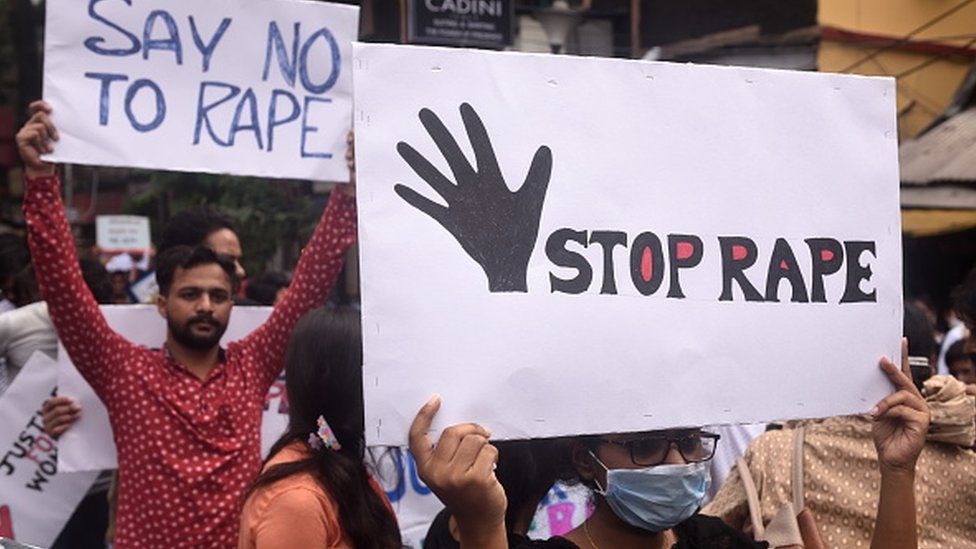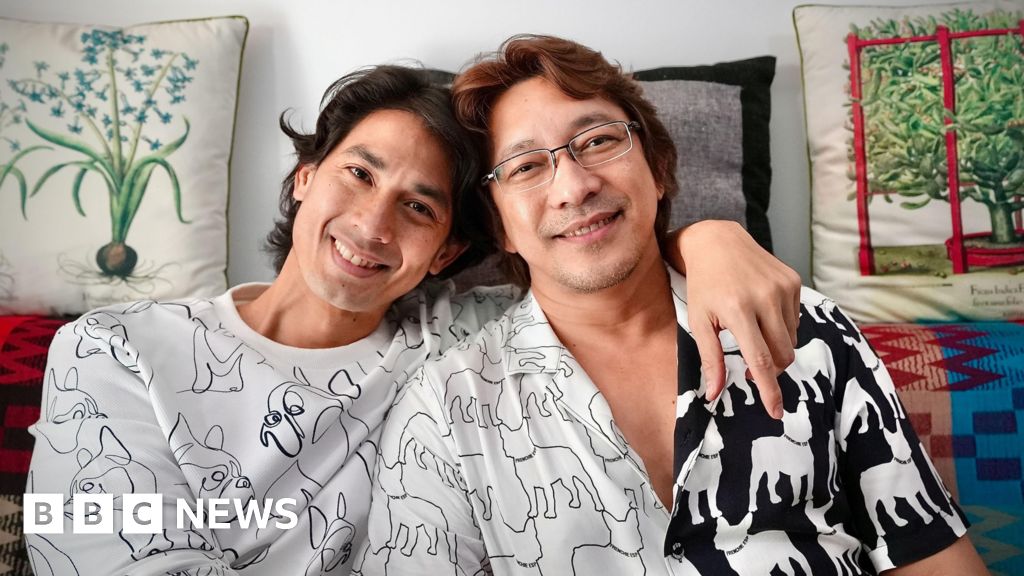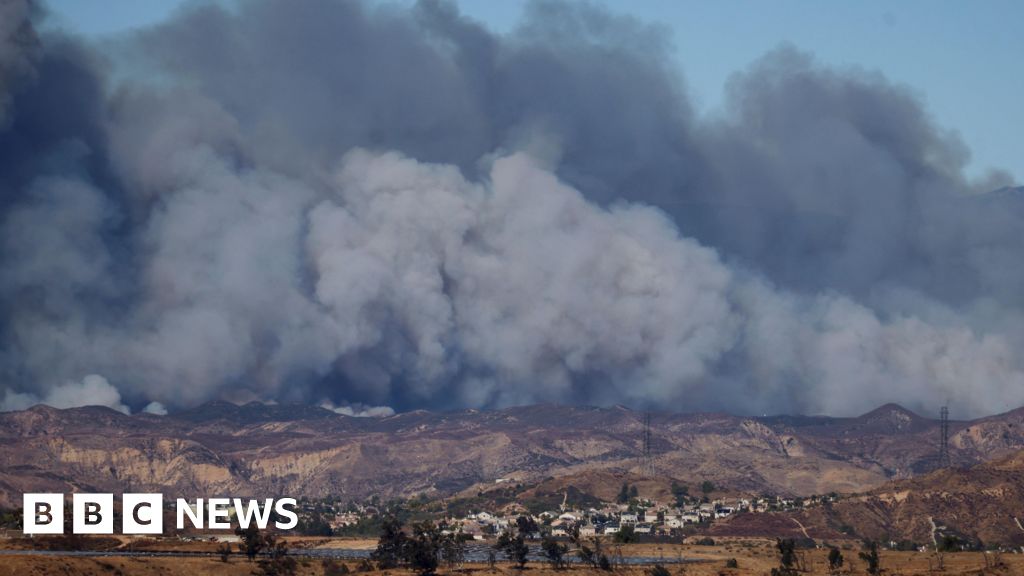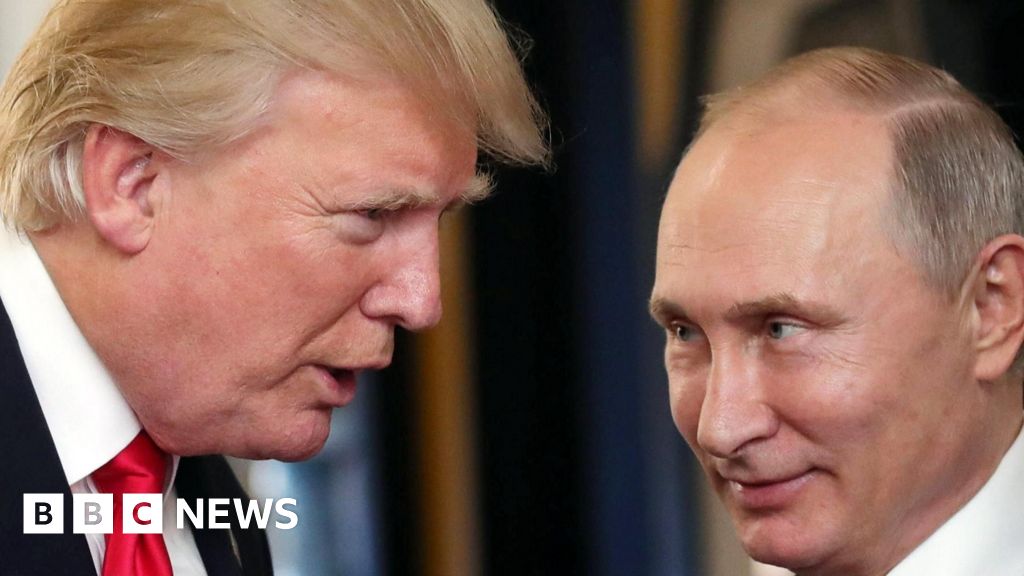ARTICLE AD BOX
 Image source, Getty Images
Image source, Getty Images
The issue of rape has often triggered protests in India
By Meryl Sebastian
BBC News, Delhi
The alleged gang rape of a Brazilian tourist in the eastern Indian state of Jharkhand has led to outrage in the country.
The 28-year-old woman and her husband, who were on a motorbike tour, had stopped for the night in Dumki district when the alleged attack took place.
Police say that they have arrested four men and are searching for three more.
The identities of the men, who are also accused of beating the woman's partner, have not been disclosed yet.
The couple had travelled to several parts of Asia on their motorbikes before arriving in India a few months ago.
Over the weekend, the woman posted a video on their Instagram page which has 234,000 followers.
"Seven men raped me. They have beaten us and robbed us, although not many things [were taken] because what they wanted was to rape me," she said in Spanish, adding that the men beat them and threatened to kill them.
In a separate video, her husband, who is Spanish, said: "My mouth is destroyed, but my partner is worse than me. They have hit me with the helmet several times, with a stone on the head. Thank goodness she was wearing the jacket and that stops the blows a little."
The videos are no longer up on their page.
Dumka's police superintendent Pitamber Singh Kherwar told reporters the couple flagged down a patrol van which took them to a local health centre for treatment.
"The couple were speaking in a mixture of English and Spanish so the patrolling team could not understand them initially. But they appeared visibly injured so they were taken for treatment," he said, adding that the couple then told doctors about the alleged rape.
The Brazilian embassy in India told the BBC that the woman - who has dual Brazilian-Spanish nationality - and her husband "were victims of a serious criminal attack". The embassy said it had contacted the woman and local authorities as well as the Spanish embassy, as the couple had used Spanish passports to enter India.
"The Spanish embassy said that it had offered all the assistance available, including psychological care, but that the victims had declined the offer as they were already being looked after by the Indian emergency services," the Brazilian embassy said, adding that it would continue to "monitor all developments".
The BBC has reached out to the Spanish embassy for comment.
"We need to stand united in our commitment to end violence against women everywhere in the world," the Spanish embassy in India posted on X (formerly Twitter) on Sunday.
Conversations around rape and sexual violence became more prominent in India after the 2012 gang rape and murder of a young woman on a bus in Delhi led to huge protests and changes to the country's rape laws. But tens of thousands of rapes are reported every year and activists say there is still a long way to go to tackle the issue.
Over the weekend, several women shared their stories of dealing with unwanted sexual attention while travelling in India.
The chief of India's National Commission for Women, Rekha Sharma, also sparked criticism after she responded to a post from a US journalist who wrote that while India was one of his favourite places, "the level of sexual aggression" he witnessed while living in the country was "unlike anywhere else I have ever been". He also gave a couple of examples of sexual assault faced by women he knew.
"Did you ever report the incident to police?" Ms Sharma wrote. "If not then you are totally an irresponsible person. Writing only on social media and defaming whole country is not good choice."
The response led to an outpouring of criticism from people on social media.
Several people have also left comments under the couple's Instagram and YouTube videos, expressing solidarity and sympathy with them.

 10 months ago
76
10 months ago
76








 English (US) ·
English (US) ·